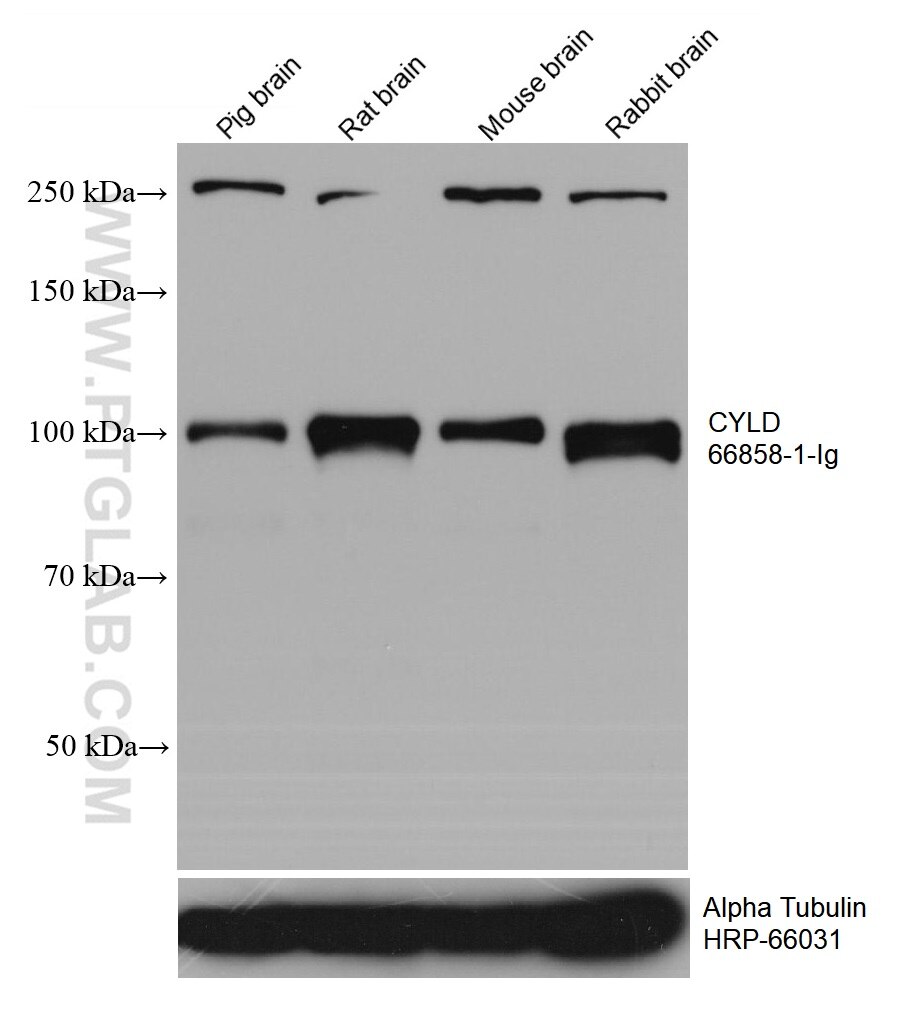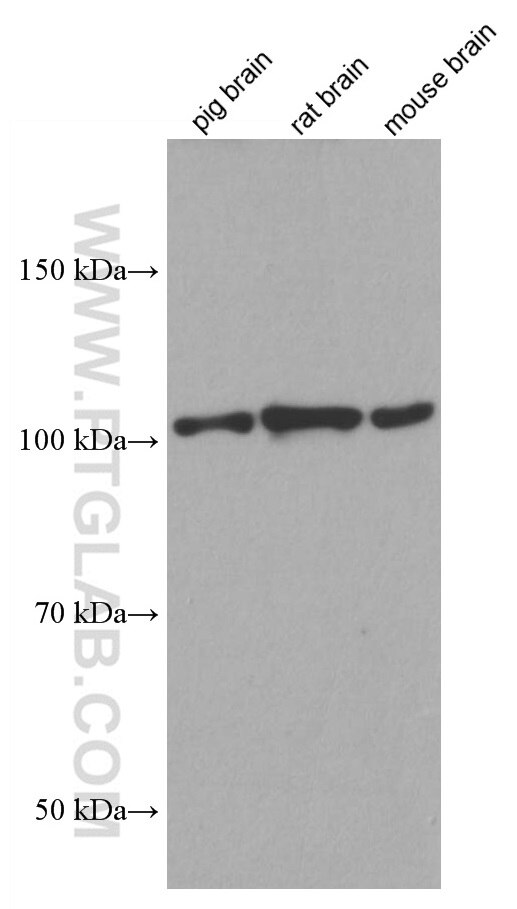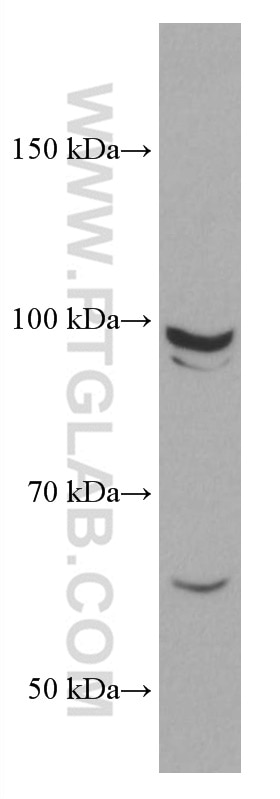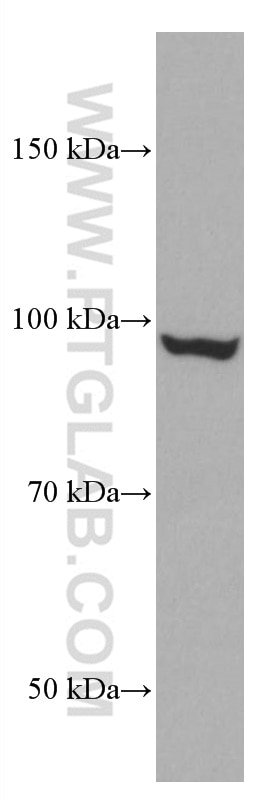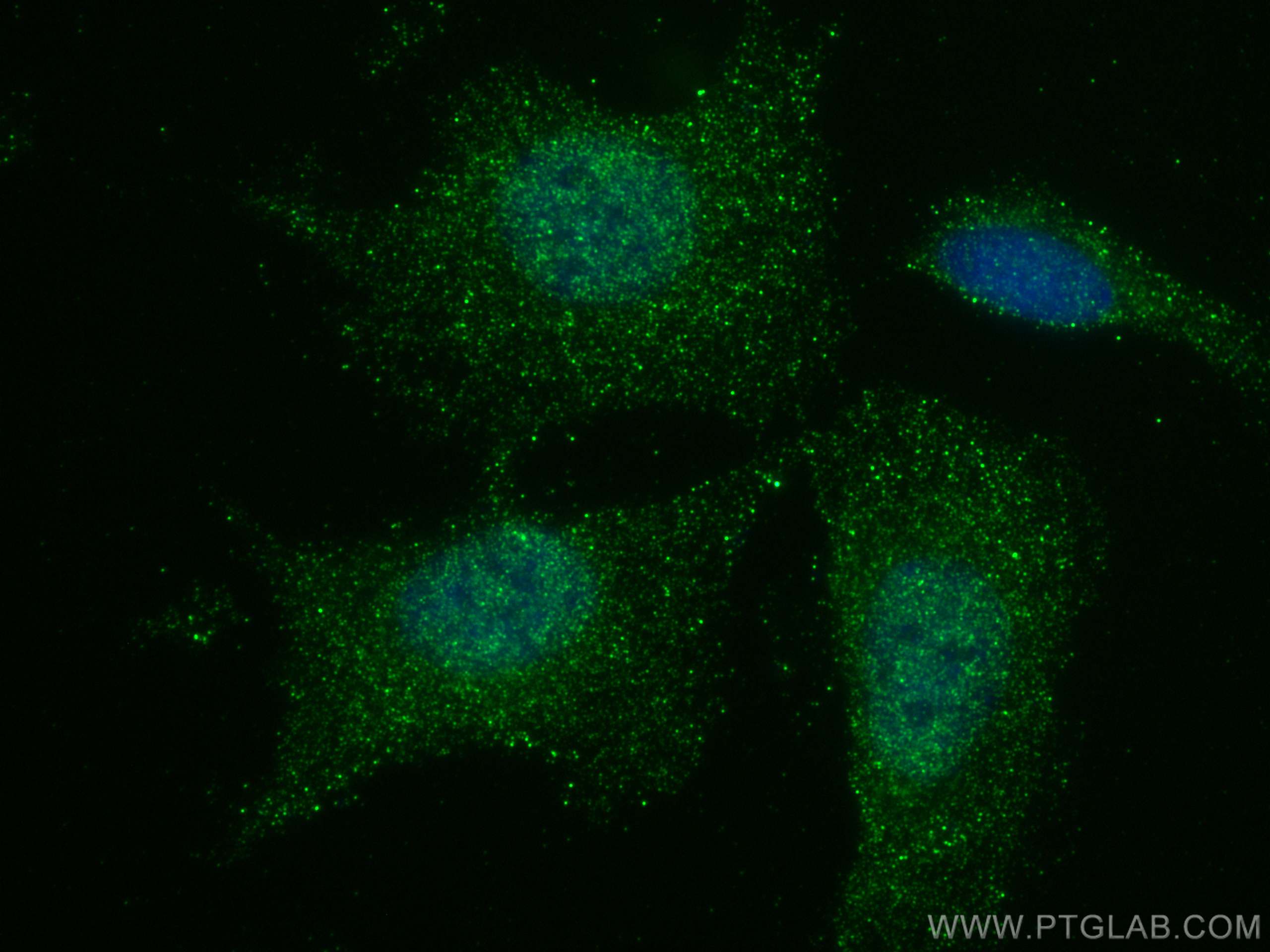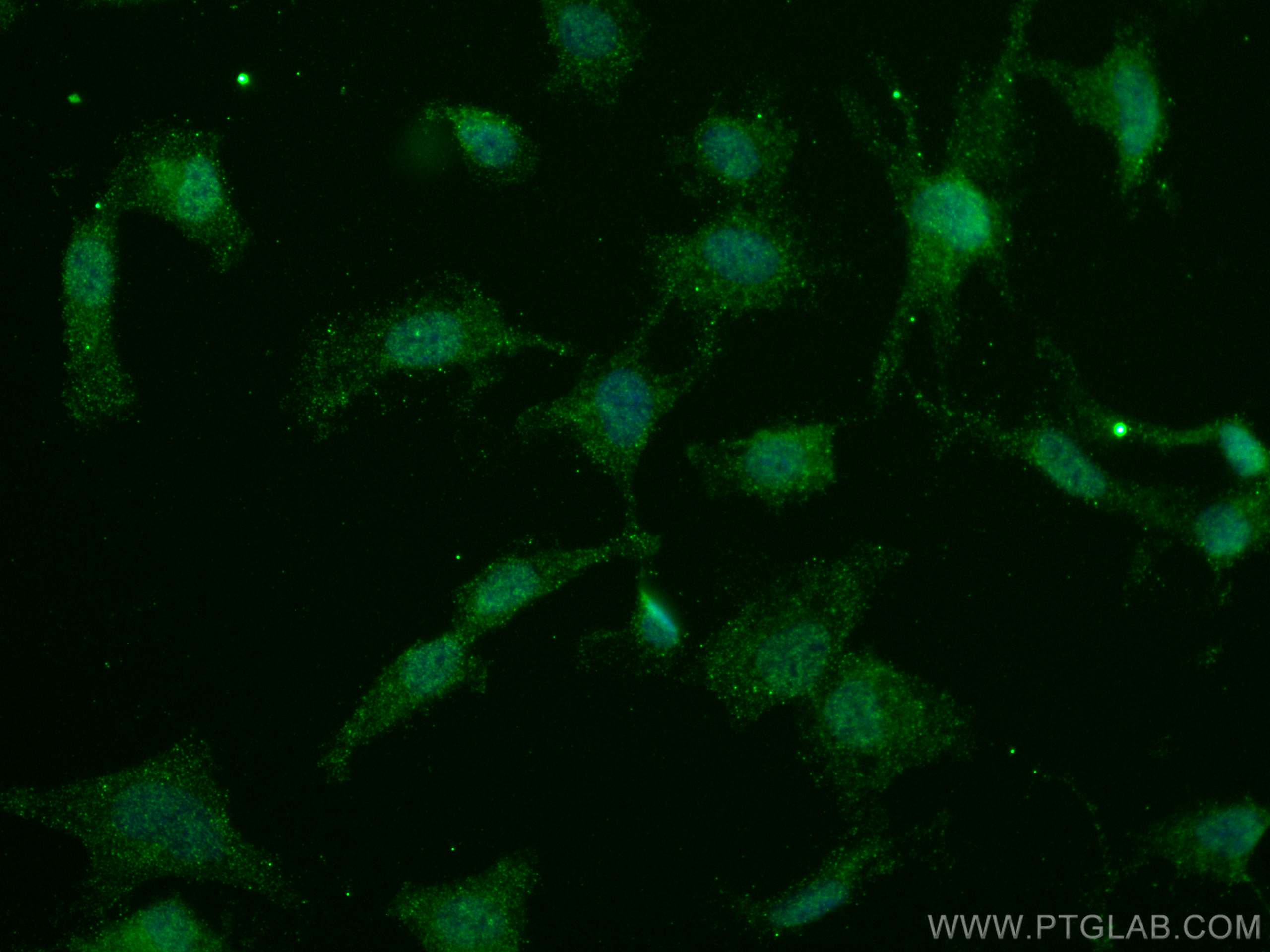Anticorps Monoclonal anti-CYLD
CYLD Monoclonal Antibody for WB, IF/ICC, Indirect ELISA
Hôte / Isotype
Mouse / IgG2a
Réactivité testée
Humain, Lapin, porc, rat, souris
Applications
WB, IF/ICC, Indirect ELISA
Conjugaison
Non conjugué
CloneNo.
1G2F4
N° de cat : 66858-1-PBS
Synonymes
Galerie de données de validation
Informations sur le produit
66858-1-PBS cible CYLD dans les applications de WB, IF/ICC, Indirect ELISA et montre une réactivité avec des échantillons Humain, Lapin, porc, rat, souris
| Réactivité | Humain, Lapin, porc, rat, souris |
| Hôte / Isotype | Mouse / IgG2a |
| Clonalité | Monoclonal |
| Type | Anticorps |
| Immunogène | CYLD Protéine recombinante Ag28333 |
| Nom complet | cylindromatosis (turban tumor syndrome) |
| Masse moléculaire calculée | 107 kDa |
| Poids moléculaire observé | 110 kDa |
| Numéro d’acquisition GenBank | BC012342 |
| Symbole du gène | CYLD |
| Identification du gène (NCBI) | 1540 |
| Conjugaison | Non conjugué |
| Forme | Liquide |
| Méthode de purification | Purification par protéine A |
| Tampon de stockage | PBS only |
| Conditions de stockage | Store at -80°C. 20ul contiennent 0,1% de BSA. |
Informations générales
CYLD, also named as CYLD1, belongs to the peptidase C67 family. It is the protease that specifically cleaves 'Lys-63'-linked polyubiquitin chains. CYLD has endodeubiquitinase activity and plays an important role in the regulation of pathways leading to NF-kappa-B activation. CYLD contributes to the regulation of cell survival, proliferation and differentiation via its effects on NF-kappa-B activation. It is a negative regulator of Wnt signaling. CYLD inhibits HDAC6 and thereby promotes acetylation of alpha-tubulin and stabilization of microtubules. CYLD plays a role in the regulation of microtubule dynamics, and thereby contributes to the regulation of cell proliferation, cell polarization, cell migration, and angiogenesis. It is required for normal cell cycle progress and normal cytokinesis. CYLD inhibits nuclear translocation of NF-kappa-B and plays a role in the regulation of inflammation and the innate immune response, via its effects on NF-kappa-B activation. It is dispensable for the maturation of intrathymic natural killer cells, but required for the continued survival of immature natural killer cells. CYLD negatively regulates TNFRSF11A signaling and osteoclastogenesis.
